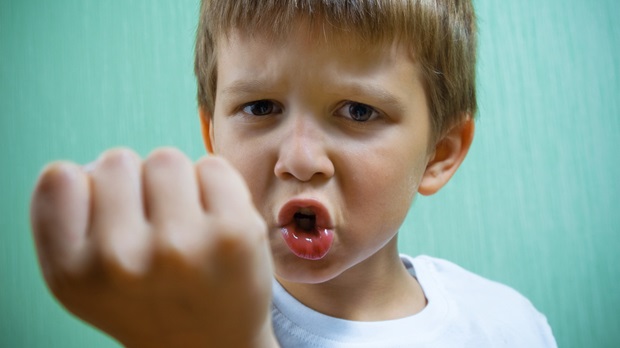
A Happy, Healthy (Angry?) Family

I learned how to be emotionally dishonest at an early age. When I was a child, any expression of anger earned me a one-way ticket to my room for a prolonged timeout. Afraid of breaking what appeared to be a fragile relational thread, I learned to either redirect or deny my anger. In essence, I learned that anger was simply not allowed.
This misguided response to anger continued well into my 40s. By that time, I had three young children and a husband who worked multiple part-time jobs. I was increasingly exhausted and angry, but I continued to deny the latter. At the same time, though, I became increasingly aware that anger was sometimes unavoidable.
Feeling safe and having self-control when angry are enormously important milestones that all children need to reach.
Though my own parents never modeled a healthy expression of anger, validated this emotion, or helped me navigate through it, as a parent myself I felt a deep need to approach anger more proactively. I wanted my kids to be able to understand and respond to feelings of anger in a healthy way. So together, my husband and I read books; we went to seminars; we grilled older, more experienced parents; and we learned.
Seeing—and Recognizing—Anger
Through this learning process, I began to see that because I’d denied the presence of anger in my own life for decades, it had morphed into barely recognizable manifestations within me, such as:
- withdrawing both physically and emotionally
- people-pleasing (especially saying yes far too often)
- compulsive activity (My husband’s favorite channel for his anger happens to be cleaning. Early on in our marriage, I joked that we needed one fight a month for our apartment to get cleaned!)
- depression
- bitterness
- cynicism
- fear
I realized that I had to face my own ambivalence about anger before I could help my children recognize and navigate through these powerful feelings.
Perhaps the most important thing we learned about anger and parenting is that anger is not simply a shameful loss of control. Anger manifests in children for various reasons, including:
- health and developmental issues (for example, autism or food allergies)
- witnessing violence in the media or in real life
- personal frustrations, failures, and limitations
- responding to a serious threat from others or a perceived danger
- normal individuation (for example, the “terrible twos”)
- a need for control
- feelings of shame or humiliation
The initial step in processing and navigating anger with my children involved training them to recognize it. Early on, recognition was often linked to particular behaviors or tone of voice. For example, we’d say, “Your anger seemed to go directly to your feet, causing them to kick over your brother’s block creation. Could you feel that happening before you kicked?” Or, “When you talk loud enough for the neighbors to hear you, can you stop for a minute and take a breath?”




